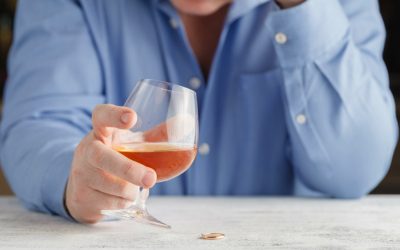Is Addiction a Disease or a Choice? Debunking Common Misconceptions
Early residential laboratory studies on alcohol use disorder indeed revealed orderly operant control over alcohol consumption [106]. Furthermore, efficacy of treatment approaches such as contingency management, which provides systematic incentives for abstinence [107], supports the notion that behavioral choices in patients with addictions remain sensitive to reward contingencies. Collectively, the data show that the course of SUD, as defined by current diagnostic criteria, is highly heterogeneous.
We acknowledge that some of these criticisms have merit, but assert that the foundational premise that addiction has a neurobiological basis is fundamentally sound. We also emphasize that denying that addiction is a brain disease is a harmful standpoint since it contributes to reducing access to healthcare and treatment, the consequences of which are catastrophic. Here, we therefore address these criticisms, and in doing so provide a contemporary update of the brain disease view of addiction.
The Most Commonly Abused Substances
NIDA provides encouraging reports about addiction treatment, stating that addiction can be successfully treated and managed. In many cases, a combination of therapy and medication is the most effective approach, but treatment should be tailored to meet each individual’s unique needs and situation. It is also important to keep in mind that when individuals seek treatment for an addiction, they are often diagnosed with a substance use disorder, which is the clinical term for an addiction.
- If we can get them when they’re incarcerated access to medications and to therapies that can help them, we can make a huge difference in how they fare once their incarceration is over.
- Among high-risk individuals, a subgroup will meet criteria for SUD and, among those who have an SUD, a further subgroup would be considered to be addicted to the drug.
- The brain changes with addiction, leading to compulsive drug use, but through counseling, individuals in recovery can learn strategies for resisting urges to use drugs and develop new ways of coping with stress.
- Alcohol is physically addictive and causes severe and potentially deadly withdrawal symptoms for addicted people.
For example, it is true that most substance abuse begins with a decision (although in many cases substance use began with a prescription from a doctor for a real medical problem and evolved into abuse). Ethos Structured Sober Living is an all male community in recovery located in the heart of West Los Angeles. Our primary Three Inspirational Recovery Stories purpose is to foster long-term sobriety through the cultivation of accountability, camaraderie, & character development. Reach out and give us a call today to learn more about how we can help you or your loved one. Anyone who tries to limit alcohol consumption or stop it entirely without success should consider treatment.
Ethos Recovery
Support groups, such as Alcoholics Anonymous or Narcotics Anonymous, can provide individuals with a sense of community and support. There is room for legitimate debate about what therapeutic and policy interventions should be adopted for addiction. The role played in addiction, as in other diseases, by elements of choice and personal responsibility must also be acknowledged, provided we recognize how addiction itself impairs this role. However, the debate must proceed based on scientific evidence and rational argument, not on myths or political ideology. When addiction is properly understood to be a compulsive behavior like many others, it becomes impossible to justify moralizing about people who feel driven to perform addictive acts.

People with substance use disorder need more and more of their drug of choice to achieve the same effect. Many attempts to stop using the drug but cannot without professional addiction treatment. Increasing access to treatment and support is crucial for individuals with addiction to recover.
© 2024 Harvard Health Publishing® of The President and Fellows of Harvard College
But the broad range of factors that both explain alcohol and other drug dependence and seem to maintain it, suggests the disease model on its own has significant limitations as an explanation. Drug addiction, in the simplest terms is the strong compulsion to get and use substances, even though a number of undesirable and dangerous consequences are likely to occur. https://accountingcoaching.online/drinking-at-workplace-work-alcoholism-signs/ Lifestyle choices can also affect gene expression in your brain, though researchers don’t yet know whether they can alter the changes induced by addictive substances. This model says that a person with a substance use disorder has no responsibility for their addiction. Addiction is a medical issue – a disease – and requires guidance from experts to control.
You can actually get people who are struggling with addiction to a stable place, and you can keep them there for a lot longer than you might imagine. A person can abuse or be addicted to just about any substance, but some things carry a greater risk of addiction than others. It’s legal and its use is widely accepted, but it is highly addictive and changes a person’s physiology and consciousness. As a disease, addiction is more difficult to treat than it would be if it were purely a choice. However, by recognizing it for what it really is, medical professionals can develop treatment plans that are more effective for helping their patients.
Dialectical behavior therapy: What is it and who can it help?
But Jeneen Interlandi, a member of the editorial board, believes we have effective tools to address this public health crisis. In this audio essay, she argues that Americans need to view addiction as a chronic health condition, and treat it as such. So it’s easy when you come away from those numbers and that image and all of that death and despair, to think, well, there’s nothing we can do. A common assumption that people have is that number one, addiction isn’t treatable. And number two, even if it were treatable most, quote-unquote, “addicts,” most people who have substance use disorders, don’t have any interest in getting help anyway, so there’s no point in trying. From Dry January and beyond, many factors can have profound effects on your brain biology.
The only implication of this, however, is that low average effect sizes of risk alleles in addiction necessitate larger study samples to construct polygenic scores that account for a large proportion of the known heritability. These data suggest that commonly used diagnostic criteria alone are simply over-inclusive for a reliable, clinically meaningful diagnosis of addiction. They do identify a core group of treatment seeking individuals with a reliable diagnosis, but, if applied to nonclinical populations, also flag as “cases” a considerable halo of individuals for whom the diagnostic categorization is unreliable.

